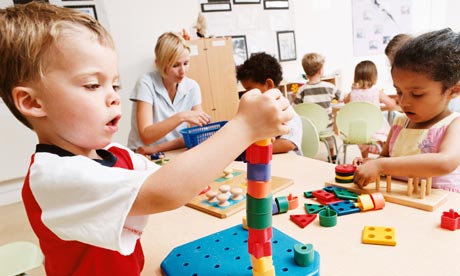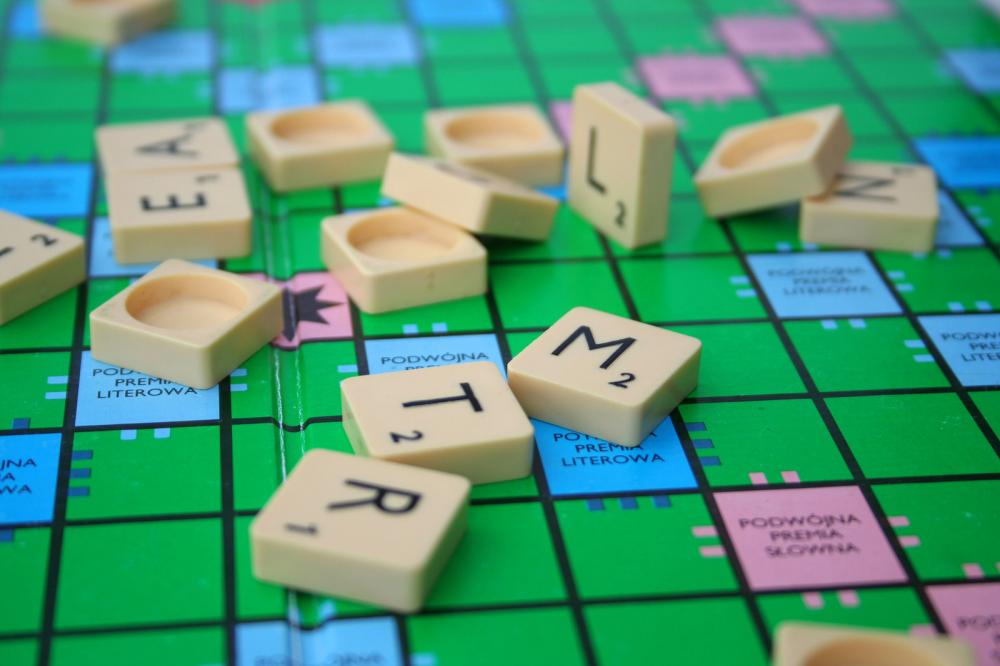Why Language Games Work for Kids and Adults!
 An article in the New York Times (May 16, 2015) by David Kohn Let Kids Learn Through Play pointed out that formal didactic instruction of young children should be reconsidered. He writes:
An article in the New York Times (May 16, 2015) by David Kohn Let Kids Learn Through Play pointed out that formal didactic instruction of young children should be reconsidered. He writes:
“A growing group of scientists, education researchers and educators say there is little evidence that this approach improves long-term achievement; in fact, it may have the opposite effect, potentially slowing emotional and cognitive development, causing unnecessary stress and perhaps even souring kids’ desire to learn.”
But kids love to play, in fact most, if not all their learning in the early years occurs during play. So we wonder whether “educational” games - including those on tablets and smart phones – are not a way for kids to still learn, but let them do so through self-directed play.
These games combine playing and educational topics from geography, math, spelling, science, to native and foreign languages.
WHY LANGUAGE GAMES WORK FOR KIDS
There are numerous audio, video, and other “toy based” games and apps, which children play in their native language. With these, they enhance word recognition, pronunciation, spelling, and writing, etc. And they don't have to be on a laptop or tablet either.
There are blocks with numbers or letters; there are playing cards and board games; and there are more and more battery operated toys that combine colors, movements, music, and language sounds into interactive learning centers for young children.
Kids play native or even foreign language games - not because it helps them to better communicate with their parents, siblings, and peers - but because they provide interactive fun.
Kids' language games teach basic vocabulary, often with funny pictures, cute sound effects, and “rewards” for getting it right. They feature droll or adorable characters, catchy music, bright colors, and require the young player to swipe, click, or move a word or image in order to progress.
“BRAIN GAMES” for Adults?
Games and play are not just for kids, though. Adults also learn well with games.  Just think of scrabble, a game that challenges adult and children.
Just think of scrabble, a game that challenges adult and children.
A well-established segment is the field of Brain Training and there are plenty of brain games/apps available. A few years ago Nintendo DS developed a series of Brain Age Games but they did not seem to catch on.
But since then, Lumosity has surged to becoming the dominant online brain game presence. There's also research being done in the area of cognitive improvement, especially related to the effect of video games on the brains of older adults. (See our blog post on Language Learning and Memory)
FOREIGN LANGUAGE GAMES for Adults?
In 2007 Nintendo DS started a series of language games (My Spanish Coach, My Japanese Coach, My French Coach, etc.) and again these did not appear to be very successful. Around the same time, Craig Gibson launched Digital Dialects, a website with simple, animated games for learning vocabulary in 30+ languages (at that time).
Also then, Word Dive, a vocabulary/spelling game appeared on the scene. Mindsnacks with its language learning app for learning and practicing vocabulary appeared in 2010 and added gamification (rewards, badges, etc.) and humor to its games.
When in 2012, Duolingo, a gamified “crowd-sourced text-translation platform” (Wikipedia) took the Internet by storm, it became clear that language learning games for adults are here to stay.
Sites that use games just for vocabulary acquisition come in various guises and continue to be popular. Word Bucket (2013) lets you save words in your “bucket” and the learn and play them in a word-playing game.
We recently discovered and like an interactive iPhone app called Drops (2015), a colorful “timed repetition” game, you can also play on an iPad.
An interesting and different site for learning vocabulary is Influent (2011), which is a “3D Language Learning Video Game” that you need to download. Once inside the game, you click/tap on objects to hear and see what they are, learn to say them and create a gamified list to further learn them.
And, many online language programs, such as Transparent Language and Babble, and language learning communities such as Busuu, Mango Languages, and Rosetta Stone's Live Mocha are now adding various language games to their lessons.
WHY LANGUAGE GAMES WORK FOR ADULTS
As language games for adults become more numerous and go mainstream, they join the “learning revolution,” which Markus Witte (Founder and CEO of the language learning site Babbel) talks about in this Wire Magazine post: The Learning Revolution: It’s Not About Education.
In his words: “A new trend is initiated by a whole new breed of learning technology start-ups that set out to make learning easier for everybody.” Why not jump on this trend and play a few language games?!
In contrast to children, adults typically do have a specific plan or need for the language they are learning (be it for work, travel, friendship, personal satisfaction, etc.).
 Moreover, adults not only have to develop the discipline and learning habits to keep going in the midst of their many other commitments and time constraints, but they also have to find ways to stay motivated.
Moreover, adults not only have to develop the discipline and learning habits to keep going in the midst of their many other commitments and time constraints, but they also have to find ways to stay motivated.
Games can therefore be an effective addition to any language learning program, especially because they are interactive and fun. Being engaged while learning can be a powerful boost to a learner's motivation.
Because of their interactive nature, games are very versatile. They can easily combine humor and serious learning.
(Think of the Duolingo Owl, or the Rhinos of the Mindsnacks games.) Plus, games are nonlinear and dynamic, features which help in the acquisition of language as a complex tool for communication.
When learners make a mistake or need to figure out a grammar point, they can easily replay a segment and get immediate feedback. Games can also interweave a story line - which provides context - with vocabulary and grammar practice, while keeping the learner interactively engaged (a main feature of Gamesforlanguage). Moreover, by involving multiple senses - visual, auditory, and touch - games stimulate association and sharpen memory.
Last but not least, games are relaxing because they are fun and engaging. And who would not want to learn in such a way?
A Word of Caution
As wonderful as gamified online courses and apps are for learning and staying engaged, they are also unlikely to get you to become fully fluent in a foreign language: For that, you have to start speaking and have conversations in the foreign language.
Maybe in the not-too-distant future you can have such conversations with your PC, tablet or smart phone. But until then, your best bet is to find real-life conversation partners. If these are hard to locate for the language you are learning, start speaking online with language exchange partners. Your speaking skills will greatly benefit!
